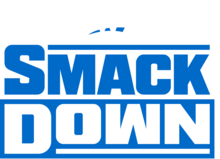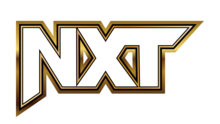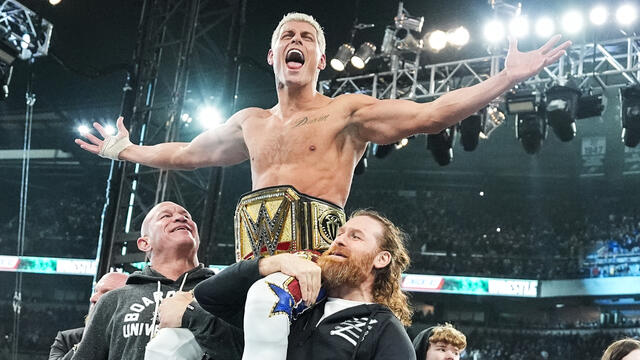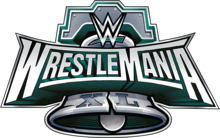Exclusive Interview: Mark Henry reflects on his 20-year career

Whether you grew up on the Attitude Era, the Ruthless Aggression Era, or the New Era, there has been one constant: Mark Henry. The World’s Strongest Man, former Olympian and former World Heavyweight Champion has been a staple of WWE programming for almost as long as some viewers have been alive. And today, he celebrates the 20-year anniversary of his very first match against Jerry “The King” Lawler at In Your House: Mind Games.
It’s truly tough to imagine WWE without him at this point, so WWE.com got a hold of The World’s Strongest Man to discuss his legacy, his hard-knock education in sports-entertainment, and the one aspect of his job as a WWE Superstar he intends to continue even after he hangs up his boots.
WWE.COM: How does it feel to officially call yourself a 20-year veteran?
MARK HENRY: You know what, man? It’s really cool. At one point in my life, I thought getting old was a bad thing. Then I realized that the prestige, the respect and the honor that people hold you at for being able to do anything for 20 years is well worth it.
WWE.COM: How long did it take you to prepare for your debut at WWE In Your House: Mind Games, since you had the Olympics around the same time?
HENRY: It was hard because I had been an anaerobic athlete my whole life – and when I say anaerobic, I mean you do quick bursts and you can have a lot of time to rest. Your body has to get used to that. When I came into sports-entertainment, it’s an aerobic sport. You have long periods of time to get used to working. I’ve had matches go 38 minutes. To be able to move for 38 minutes and have somebody’s life in your hands is a difficult thing.
WWE.COM: You’ve mentioned you were nervous going into the match with Jerry Lawler. How long did it take you to get over those nerves and get a feeling for what you were doing?
HENRY: Oh, once you walk through that curtain, you hear those people and you look out there, it just becomes complete joy and excitement. The way Jerry put it, he was nervous too. He had worked with big guys, especially strong guys before, but he didn’t feel like those guys were anywhere near as strong as I was. I could see him being nervous. [But] it worked out great.
WWE.COM: What do you think some of the newer Superstars coming up from NXT can learn from a debut like yours?
HENRY: When I came in, I was one of the last guys to work in territories. You went, you learned your craft, and a lot of times you would go places and people would try to run you off. They really wouldn’t teach you anything. They’d just take your money, beat you up and send you on your way. Vince [McMahon] didn’t want that. He wanted us to really learn, and he had guys that were hyper-competitive come in and learn how to work and get in good condition. Be there early, leave late … the normal, traditional work ethic type of deal.
WWE.COM: Can you talk a little about your time in the territories?
HENRY: My first stop was Memphis. I can remember being there for the first time having to fend for myself and not know what was going to happen. [We] would go to Florida, St. Louis, California, Calgary, Mexico. That don’t exist no more. You go to the [WWE] Performance Center, learn everything and sooner or later, you make it to NXT and then you get moved up to the big show. And I don’t mean Paul [Big Show] Wight. [Laughs]
WWE.COM: The territory system is very famously sink-or-swim. How difficult was it to navigate those waters?
HENRY: It was something that I wouldn’t wish on a young kid because so many things could go wrong. I broke my ankle and I didn’t know how to deal with people in the locker room. I wasn’t used to people picking on me and hazing me. I felt like I was already somebody. I rebelled and got sent to Canada, which ended up being the best thing for me because I got to train with the Harts and Leo Burke. [Burke] prepared me for coming back to America and working with Danny Davis and Jim Cornette, and later Rip Rogers. I had the pleasure of learning how to wrestle long matches and use psychology. Now, here it is, 20 years later.
WWE.COM: Sounds like many people played a role in creating the legacy of Mark Henry.
HENRY: I didn’t make it here by myself. I had a lot, a lot of help. There are probably 20 or 30 people that work for WWE that had a lot to do with my development. And the talent! I worked with the best wrestlers in the last 100 years: The Undertaker, Shawn Michaels, Triple H, Yokozuna and many, many other guys, from Vader to Kane. You don’t start at the top, and my first match was a pay-per-view with Jerry Lawler! It was a different time, and I don’t think everybody can handle that fire.
WWE.COM: Given that you were brought up in this very tough developmental system, how do you take it upon yourself to mentor some of the younger talent who came up a different way than you did?
HENRY: Well, one, I explain to them the culture of the locker room. That’s the foremost thing you have to learn. To respect, to honor the people that came before you, and don’t talk so much. [And] listen. Learn how to humble yourself, and be able to take advice and not feel like you know everything. Once you can do those two things, you open yourself up for the psychology lessons, because people think that our business is being able to flip, jump, catch and all that. It’s really psychology-driven. Sometimes [it’s] simple psychology — big vs. small, fast vs. slow, good vs. evil. But then, it takes an unbelievable turn where – with your movements and your looks and your eyes and actions – you have to be able to tell people what they usually use words for.
WWE.COM: Is that a difficult learning process for some Superstars?
HENRY: Some people never learn. They have all the physical talent in the world, but they never learn the psychology. I try to explain that it’s not going to happen overnight. You have to be able to stick it out. At some point, you equate it to being like a hallway full of light switches. You walk down that hallway and flip on a light switch so you can see.And then, you flip on another light switch so you can see. When you get to the end, you look back and you can see everything. That’s the main lesson: Longevity is key, [and] to feel like you’ve never learned everything, because every day, you learn something in this industry.
WWE.COM: Is there any one Superstar you took under your wing whom you felt really took to the lessons you gave them?
HENRY: There have been several. Daniel Bryan was one that I take a lot of pride in saying I saw him on the independent scene and told him what his future was going to be before he started here. He just laughed and looked at me like, “OK, I’m just happy to be here.” [Laughs] I said, “No, brother, don’t be happy to be here. You gotta take the initiative to be what I’m telling you that you could be.” Randy Orton, Kofi Kingston … To sit here and say I had a hand in [their careers] is awesome, but I can’t take credit for the work. I can only say I saw something in that person, and did my best to try and help.
WWE.COM: You have also become an ambassador for the company, and do a lot of charity work on top of what you do in the ring. Can you talk a little about that aspect of your career?
HENRY: Vince takes a lot of pride in giving back. From the Wounded Warriors to working with all the Armed Forces with Tribute to the Troops, the list goes on, and I think that’s his pride and joy. There are a lot of people that love what we do and we would be selfish to not give back. I’ve always enjoyed doing anything with the kids. I’ve always said that kids don’t ask to be here. So, you try to teach them and have fun with them as much as you can. Going to St. Jude’s and the children’s hospitals … that stuff is hard. But imagine the parents having to endure having a terminally ill kid and not know if they’re coming home. If we can give them any joy, it’s a blessing. I’ll continue to do that for as long as I’m involved, even after I’m done [in the ring].
WWE Shows Latest Results
Raw results, April 15, 2024: Chad Gable viciously attacks Sami Zayn after losing to Zayn in Intercontinental Title Match!
Full ResultsSmackDown results, April 12, 2024: LA Knight and AJ Styles earn victories for a chance to challenge Cody Rhodes at WWE Backlash!
Full ResultsWWE NXT results, April 16, 2024: Trick Williams defeats Carmelo Hayes in a Steel Cage Match
Full Results













